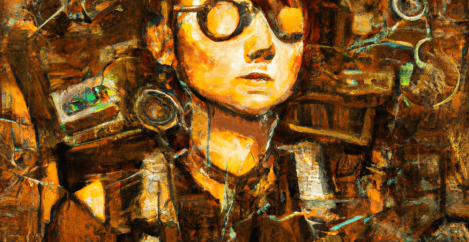February 20, 2025
Being watched all the time, changes the way we see the world and other people
 In an era where surveillance is an omnipresent part of daily life, researchers have discovered that being watched not only influences our behaviour but also alters fundamental aspects of human perception. A new study published in Neuroscience of Consciousness has found that the mere awareness of being subject to surveillance enhances our ability to detect faces, even outside of conscious control. This breakthrough research sheds light on how surveillance impacts social cognition and has significant implications for public mental health and privacy debates.
In an era where surveillance is an omnipresent part of daily life, researchers have discovered that being watched not only influences our behaviour but also alters fundamental aspects of human perception. A new study published in Neuroscience of Consciousness has found that the mere awareness of being subject to surveillance enhances our ability to detect faces, even outside of conscious control. This breakthrough research sheds light on how surveillance impacts social cognition and has significant implications for public mental health and privacy debates.
From CCTV cameras on every street corner to facial recognition systems embedded in smartphones, modern life is increasingly defined by observation. While much research has explored how being watched affects behaviour—making people more likely to act honestly or prosocially—this new study, led by Kiley Seymour and colleagues, takes a step further. It examines how surveillance changes human sensory perception, specifically our ability to detect faces.
Using a technique called continuous flash suppression (CFS), the researchers found that people who knew they were being watched became significantly faster at recognising faces than those who were not under surveillance. This suggests that surveillance doesn’t just affect deliberate actions but also involuntary, unconscious cognitive processes.
To test their hypothesis, the researchers recruited 54 participants and divided them into two groups. One group was told they were being monitored via CCTV cameras, while the other group completed the experiment without surveillance. The experimental setup was designed to be conspicuous—participants in the watched group were explicitly shown a live feed of themselves on a monitor, reinforcing the awareness of being observed.
The researchers then measured how quickly participants could detect faces using the CFS technique. This method involves presenting one eye with a dynamic visual noise pattern, which suppresses the visibility of an image presented to the other eye. The time it takes for a suppressed face to break through and become consciously recognised is an indication of how strongly the brain prioritises facial recognition.
The results were striking. Participants in the watched group detected faces nearly a second faster than those in the control group. This increase in speed was observed for both direct and averted gaze faces, suggesting that being watched heightens sensitivity to facial cues in general.
Face time
The researchers propose that the heightened sensitivity to faces in surveilled participants is linked to an adaptive response in human cognition. The ability to detect when someone is looking at us is crucial for social interaction and survival. When individuals believe they are being watched, their brains may prioritise face detection as a protective mechanism, ensuring they are more aware of potential social scrutiny.
Interestingly, the effect was specific to faces. A follow-up control experiment using neutral stimuli (such as simple geometric patterns) found no significant difference in detection speed between the watched and unwatched groups. This indicates that the surveillance effect is uniquely tied to social vision and does not result from a general increase in alertness or attention.
The report argues that these findings have profound implications for how pervasive surveillance influences human cognition and mental health. The study suggests that constant monitoring may lead to heightened vigilance in social situations, potentially contributing to stress and anxiety. Previous research has shown that individuals who frequently feel watched experience increased self-consciousness and even paranoia. If surveillance alters subconscious cognitive processing, it may have long-term psychological consequences that extend beyond voluntary behaviour.
The research also raises ethical questions about the widespread use of surveillance technologies. If being watched changes how we perceive the world at a fundamental level, does this alter our autonomy and freedom in ways we are unaware of? In environments where surveillance is intense—such as workplaces, public spaces, or even online—how does this affect social interactions and mental well-being over time?
Beyond individual psychology, the study highlights broader public health concerns. If surveillance heightens sensitivity to social stimuli, it may exacerbate conditions such as social anxiety disorder or paranoia. People with existing mental health vulnerabilities might be particularly affected by environments where they feel constantly scrutinised.
On the other hand, this effect could be harnessed for positive applications. Enhanced facial recognition under surveillance could improve social awareness in individuals with certain conditions, such as autism spectrum disorder (ASD), where difficulties in recognising social cues are common. Further research is needed to explore whether controlled exposure to surveillance could be used therapeutically to enhance social perception.















